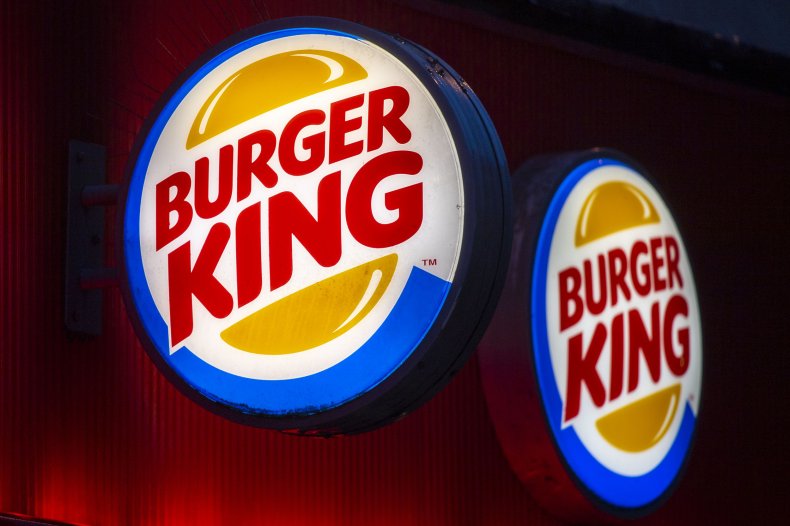While most pranks work as intended, jokes can turn sour pretty quickly, particularly when big companies get involved or jokes are spread by TV and radio stations and social media.
Unlike Halloween, April Fools’ Day has a relatively uncertain derivation. Stories vary from a holiday mentioned in Chaucer’s Canterbury Tales in 1392 to a mention of poisson d’avril (April fool, literally “April’s fish”), by French poet Eloy d’Amerval in 1508.
The first certain mention of the holiday doesn’t appear in English until 1686 though the day itself was likely celebrated some years before.
The most reasonable explanation for the origin of the holiday appears to be the story that some countries adopted the Gregorian calendar earlier than others and therefore celebrated the new year on January 1 rather than March 25 under the previous calendar. Under the old calendar, the celebration ended on April 1 after a week of revelry. The story goes that the non-French (and therefore less civilized) people who continued to celebrate the old calendar were fools and therefore called “poisson d’avril” in French vernacular which translates to “April fools” today.
There are a number of other possible derivations. A Roman festival of Hilaria (no relation to Alec Baldwin’s wife) occurred on March 25 with an ending celebration on April 1 but there seems to be very little link between the celebration of that festival during the Roman empire and the rise of April Fools’ Day in the late Renaissance.
Whatever the derivation, for some reason American and Northern European society appeared to need to celebrate fools as spring began.
Once April Fools’ Day became a part of the folk calendar, North Americans and the British took to it with a passion, giving rise to numerous expressions associated with the day. A “fool’s errand” and “wild goose chase” appear to be among the most popular tasks doled out during April Fools’ in the late 18th century.
The end of the world
Anyone thinking tasteless April Fools’ jokes are a modern gimmick used to prop up commercial campaigns would be wide of the mark. In 1940, William Castellini, the spokesperson for the Franklin Institute Science Museum in Philadelphia, thought well of going to extreme lengths to advertise the museum’s upcoming show on cosmic apocalypses and published a press release advertising the end of the world.
“Your worst fears that the world will end are confirmed by astronomers of Franklin Institute, Philadelphia,” the statement read.
“Scientists predict that the world will end at 3 p.m. Eastern Standard Time tomorrow. This is no April Fools’ joke.”
Panicked Philadelphians flooded emergency lines and the joke, ultimately, was on Castellini who was swiftly fired.
he idea was to give users “the last word on any email,” Google said in its mea culpa at the 2016 joke. But users were not amused – and neither were the clients, bosses and potential employers that the replies were sent to. It even reportedly cost at least one person their job.
Taco Liberty Bell
It was 25 years ago that many across the nation were scandalized by the announcement by fast food franchise Taco Bell that it had bought the Liberty Bell. The Philadelphia Inquirer and several other major newspapers contained full-page ads on April 1, 1996, headlined “Taco Bell Buys the Liberty Bell.”
Calls flooded in to The Philadelphia Inquirer, the National Park Service and elsewhere, including Taco Bell’s California headquarters, The Inquirer reported last week in commemorating the event. Adding insult to perceived injury, the chain was going to rename the bell as the Taco Liberty Bell. Eventually, The Inquirer noted, “humor set in.” Taco Bell later donated $50,000 for preservation and upkeep of the national treasure.
Titanic fail
On April 1, 2001, a DJ announced that a full-sized replica of the Titanic was set to appear off the cliffs at Beachy Head in East Sussex, England. Hundreds flocked to the town about 20 miles east of Brighton on England’s south shore – so many that they crowded onto the famed chalk cliffs the area is known for. Soon after, the Dover Coast Guard found a 5-foot crack in the cliffs, and according to Reader’s Digest, days later a chunk slid into the sea.
Blowing it
In 1980, an urgent bulletin was issued — a Massachusetts TV producer aired a false news report that a hill near Boston had erupted like a volcano, reported The Christian Science Monitor at the time. It all started when a hapless producer looking for some April Fool’s fun reported that the Great Blue Hill in Milton, Mass. – which had actually not been volcanic for about 600 million years – was spewing lava into the suburban community. He illustrated it with films of the at-the-time active Mount St. Helens in Washington State, complete with voiceovers dubbed from President Carter’s unrelated speeches.
Needless to say, said producer was fired for “failure to exercise good news judgment,” as well as for violation of Federal Communications Commission rules, The Monitor said.
How not to get away with murder
Sometimes, April Fool’s pranks can get pretty dark. A Tennessee woman’s attempt at literal gallows humor nearly got her arrested back in 2013, when she called her sister to report she had just murdered her husband, and asking for her help in burying him, reported Huffington Post. Her sister did not check the calendar, and for some unknown reason believed her. The news spread through the family, and a relative finally called the police.
While cops had the woman in the squad car, the husband came home from work, very much alive.
Love’s limits tested
Kit Harington and Rose Leslie, who met while filming “Game of Thrones” and married in 2018, have had their prankster ups and downs. Like that time Harington thought it would be funny to leave a model of “Thrones” character Jon Snow’s severed head in the fridge for one April Fool’s, as BuzzFeed reported. She wasn’t amused.
His next one was less stark, but backfired perhaps more profoundly, costing him a bundle. He told Leslie that her favorite brand of almond milk would soon be unavailable, as Brexit fallout was bankrupting the manufacturer. Leslie proceeded to stock up in a panic, ordering a lifetime supply to the tune of about $200 – on his credit card.
Boston’s mayor is alive and well
In 1998, Gregg Hughes and and Anthony Cumia used their radio show on WAAF radio in Boston to tell the listeners that the city’s then-mayor, Thomas Menino, had died in car crash in Florida. Hughes and Cumia corroborated their story with several fake reports and even went as far as taking calls from listeners on Menino’s alleged death. The macabre joke swiftly got out of hand and mourning friends began showing up at Menino’s sister-in-law’s house to offer their condolences.
It was soon established Menino was in fact alive and well and Hughes and Cumia were fired.
Left-handed whoppers
In 1998, Burger King came up with revolutionary idea: a version of its famous Whopper burger designed specifically for left-handed people. There was, of course, no such thing but that didn’t stop thousands of customers across the country from flooding Burger King stores to order the left-handed Whopper.

Volkswagen’s rebranding
On March 29, the U.S. subsidiary of the German automaker announced it would rebrand from Volkswagen to Voltswagen. The rebranding appeared to be subtle nod to the automotive giant prioritizing electric vehicles in the future and took social media by surprise. It was also completely untrue, as Volkswagen subsequently clarified after the joke fell on deaf ears.
“Volkswagen of America will not be changing its name to Voltswagen,” a Volkswagen of America spokesperson said in a statement.
“The renaming was designed to be an announcement in the spirit of April Fool’s Day, highlighting the launch of the all-electric ID.4 SUV and signaling our commitment to bringing electric mobility to all.”
“Spaghetti”
The 20th century combined mass communication with more sophisticated pranks and led to some notable April Fools’ Day jokes. In 1957, the BBC aired a story about a plant that grew the then-new dish of “spaghetti” causing viewers to write the broadcaster asking for information about where to find seedlings for the plant. A Swiss news show broke a story of an initiative to clean the Alps. The Swiss were not amused. In 1989, Seattle comedy show Almost Live! (where Bill Nye and Joel McHale got their starts in comedy) broke into its programming with a fake newscast announcing the collapse of the Space Needle. The skit was immediately widely believed and required an on-air apology soon thereafter.
More recently companies like Microsoft and Google have sent out all-hands memos suggesting no participation either officially or unofficially on campus or in social media connected to the companies name. Microsoft marketing chief Chris Capossela said, “data tells us these stunts have limited positive impact and can actually result in unwanted news cycles.”
It wouldn’t be modern-day America if the issue of political correctness and woke culture has not become a part of a formerly innocuous holiday. Whether this new ethos will completely tamp down the desire to prank those near and dear remains to be seen. For a holiday with an uncertain origin and an uncertain future, for now April Fools’ Day continues to endure.


